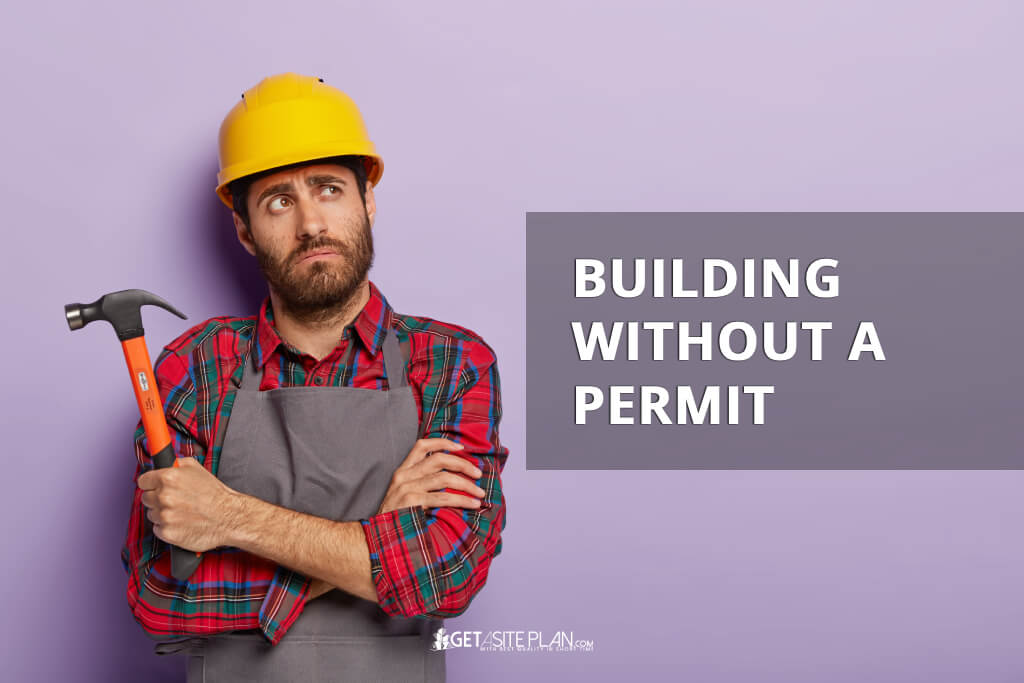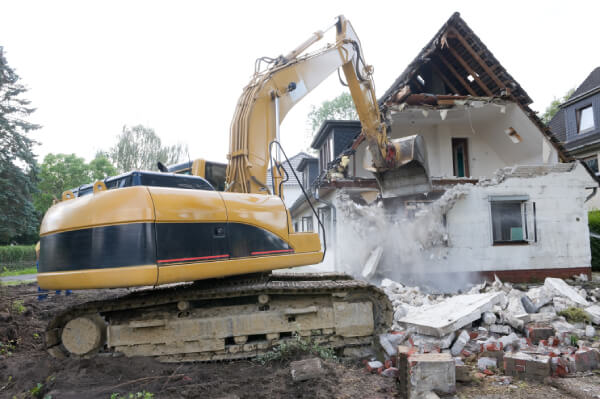
How Much Does It Cost to Build a Shed – Full Breakdown 2025
Imagine having a place that’s only a few steps away from your back door, that can be dedicated to your creative space. Building a shed can be a great addition
This is Not a Legal Survey


Contributing Writer | Architecture & Design Writer
We know that many people want to skip the permit process for home improvement projects. That is understandable, sometimes it might seem like the city officials just want to make you take unnecessary extra steps.
But, what happens when the city building inspector learns about you not having the required permits for your project? Let’s find out.
Table of Contents
Toggle
Consequences of building without a permit are very harsh. The main 5 problems that can happen if you get caught without a building permit are:
There are many different types of building permits and each local building department has different zoning and building laws. They are all in place to ensure your safety.
In addition, if you live in a HOA community you may be facing public shaming because some communities publish the names of those who build without a permit or HOA approval.
But, if you decide to build without a permit, let’s see the consequences and problems you may face.

If you decide to build without a permit, be prepared to pay some hefty fines. If you compare the price of penalties and fines with the cost of building permits, you will see that starting any project without a proper permit is much more expensive.
Local governments usually fine homeowners $500 per day for violating building codes. This will depend on the area you live in, let’s see some common fines for unpermitted work:

If the county building department finds out that you have a structure that is built without a permit, they will send the site inspection. If a home city inspector concludes that the building is not safe or up to building codes you will be asked to tear down the entire structure or parts of it that you built.
In some cases, they may let you hire a professional contractor that will fix the issues, but you will still have to pay the permit, fines and services of the contractor.
Homeowner’s insurance may not provide coverage for damages caused by unauthorized work for an unpermitted project. Home insurance providers rely on the assumption that the property they insure maintains its structural and mechanical integrity.
For example, if you do some electrical wiring without the necessary permits, and then a fire breaks out, the insurer will refuse to cover the loss if it is determined that the fire was caused by wiring due to substandard electrical work.
Furthermore, if the insurance company becomes aware of an unauthorized project, they may decide to cancel coverage. Securing new insurance can be challenging as insurers often share these types of information. Illegal renovations can void the homeowner’s insurance benefits you would otherwise be entitled to and they won’t cover your liability.

If you decide to build any type of structure without a permit, you are endangering yourself and your loved ones. This problem is much bigger than paying fines. Building codes and regulations exist for a valid reason. (Luckily, there are fully legal and low-cost alternatives to cut down on costs, besides permit-free options. See our guide on the Cheapest Way to Build a House).
Even if you managed to build a structure without a permit, there are concerns for your future safety. Bad wiring, electrical or plumbing work can lead to dangerous consequences. You want to make sure that all the construction work is done perfectly.
If you decide to sell your home keep in mind that the law requires sellers to disclose their remodeling projects to potential buyers. If potential buyers discover that you’ve done renovations without the necessary permits, this can raise a significant red flag and dampen their interest.
Also, remember that every home improvement project increases the value of your home. But if you do that work without a permit, that is not the case. Selling a home without proper permits can significantly decrease its value, so you will have to retroactively obtain permits.
Don’t assume that your project will go unnoticed by the authorities. There are several ways authorities can find out about your project:
If you are still wondering how to avoid building permits, there are some legal possibilities.
There are ways to build a structure without permits, this is a quick guide:
This approach is usually used by those who build tiny homes. A detailed explanation is in the video below.
Caption: Avoiding building permits – Loopholes for homeowners
Not every home remodeling project requires a permit. Projects for which you tipically don’t need to get a permit are:
Not all counties have the same requirements for different permits, so we recommend that you check with them first if you need the permit and what are the requirements before going any further with your project.
Projects that almost always require permit are the building or installation of:
We know that the permitting process can sometimes be time-consuming and tiring. But since having proper permits is required by law, there is no point in skipping that important step. If you need a permit for any type of project, order professionally made site plans for permits.
Credits:
Learn more about our contributor:

Contributing Writer | Architecture & Design Writer
During my career, I’ve written articles on interior design, home remodeling, and renovation with an emphasis on money-saving tips and DIY ideas. It’s been a rewarding journey and I am thrilled to continue helping others bring their architectural visions to life.

Imagine having a place that’s only a few steps away from your back door, that can be dedicated to your creative space. Building a shed can be a great addition

Building a deck is a great way to transform your outdoor space into a more appealing and functional area for relaxation and entertainment. To ensure the deck’s safety and durability,

Are you looking to modernize your pool with an outdated design and want to improve its functionality? If so, you’re in the right place. Imagine transforming your basic swimming pool